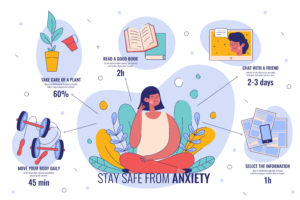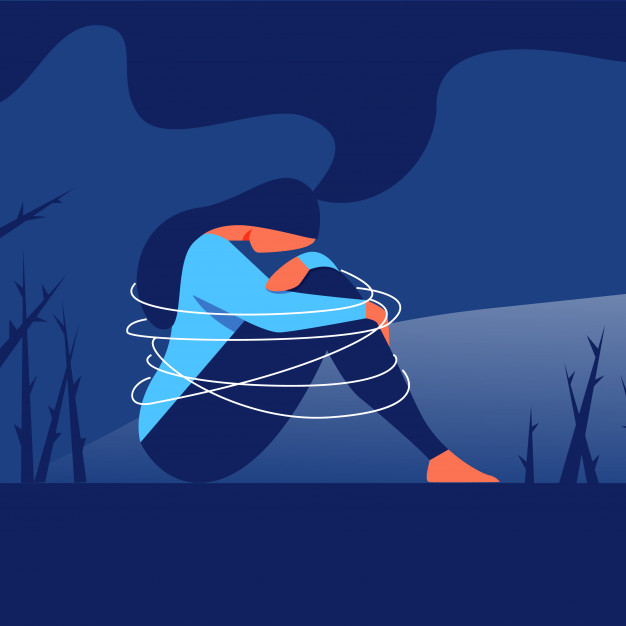Individuals with anxiety disorders experience repeated, extreme, and persistent worry and fear about everyday situations. Often anxiety disorders involve continual episodes of impulsive feelings of intense fear that can last for varying lengths of time. According to the National Mental Health Association, anxiety and depression are more common in women. Women who birth children may experience postpartum depression and other maternal mental health challenges that can affect the development of their child.
The impact of COVID-19 has only exacerbated the conditions that breed depression and anxiety. The social distancing necessary to survive this pandemic has forced many into isolation that makes worry worse, particularly for women who live alone. Overwhelming thoughts like “How long will this last? Is my family being safe? Will I stay healthy?”, are constantly at the forefront of the minds of many. Those thoughts are met with the task of processing around the clock news coverage, headlines, and social media clickbait about the threat of the pandemic and the impact it is having. Another issue is having to sort through the facts from the rumors and misinformation. Many individuals report an increase in stress, fear, loneliness, and sadness as a result of the pandemic.
For those overthinkers and individuals with anxiety or depression, these super-uncertain times are really taking a toll. Now more than ever it is important that individuals and communities prioritize mental health. What does that mean?
Quarantine increases isolation, and for folks with anxiety or depression that can be a recipe for disaster. In a recent Facebook poll, we heard from several women about their routine which included:
- Refusing to engage in conversations that heighten your anxiety
- Limiting the interactions with individuals who want to talk only about fatalities
- Getting fresh air every day
- Taking up crafts or home projects to calm thoughts
- Praying and meditating
- Exercising
- Playing games with children
- Scheduling virtual dates with friends and family

What are the things that work for you?
What should be included in local governments’ post-COVID plan to address mental health and promote evidence-based services?
